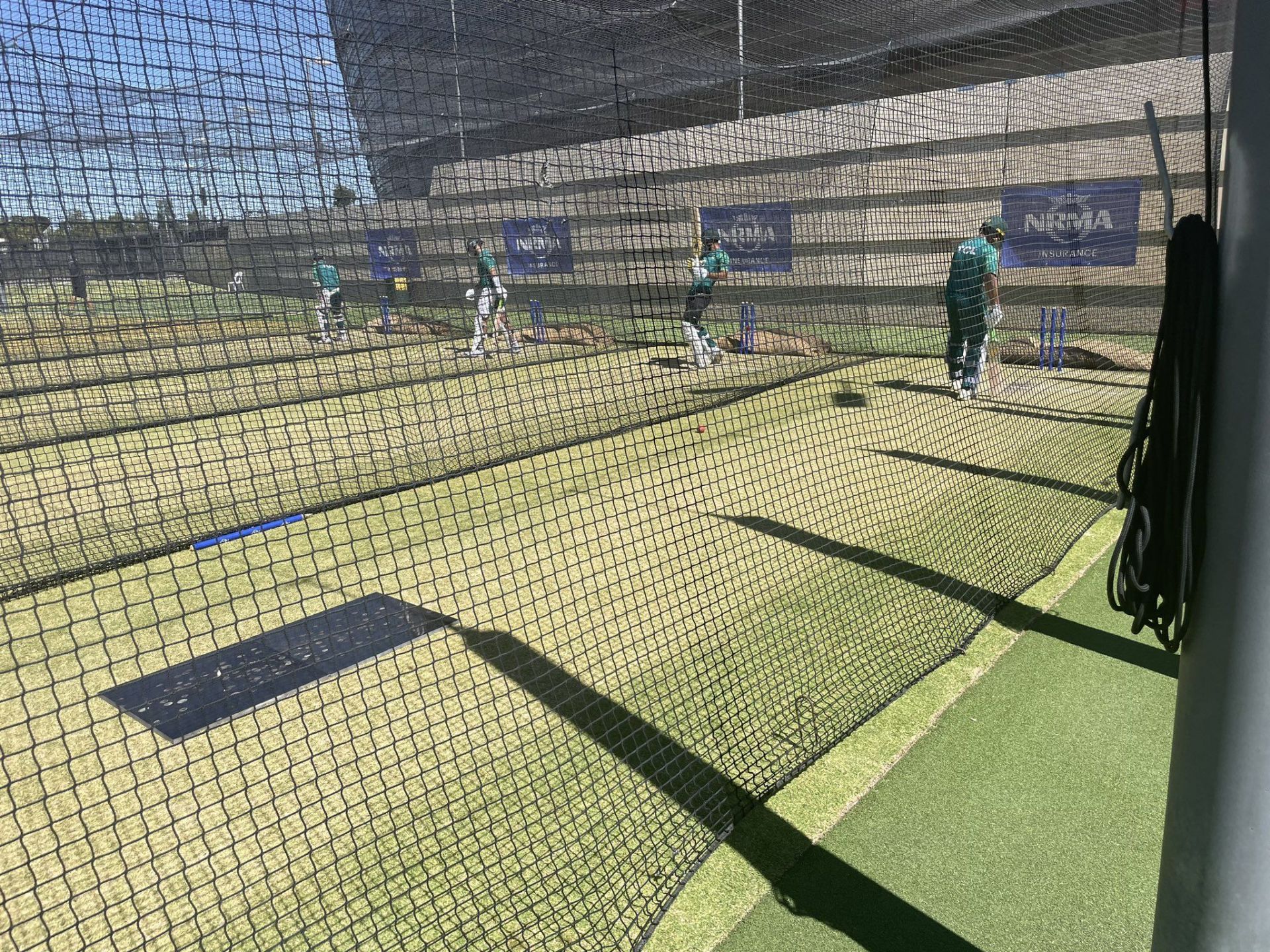
Pakistan implement use of marble slabs to acclimatize to Perth's extra bounce ahead of 1st Test against Australia
Pakistan have resorted to rather unorthodox methods to get their batters ready for the challenging Test series against Australia. The Men in Green batters were seen practicing with a marble slab in the nets to adjust to the extra bounce of the famous Perth surface, the venue for the first Test, beginning on Thursday, December 14.
Subcontinent sides have a rather abysmal red-ball record Down Under, and one of the factors responsible for it is the stark contrast in conditions. Visiting batters have found it rather hard to counter the extra pace and bounce off the Australian pitches, succumbing to the Aussie pace attack on numerous occasions.
Pakistan, who are in search of their first Test win in Australia in 27 years, were far from pleased with the 'slow and low' track prepared for the solitary warm-up fixture in Canberra against the Prime Minister's XI.
"The pitch we received for the practice (match in Canberra), that was the slowest we can ever, ever play on as a visiting team in Australia," Pakistan team director Mohammad Hafeez said after the drawn clash.
Mohammad Rizwan was one of the batters seen playing with a marble slab placed midway through the pitch, right around the back of the length area. The slab was also slightly tilted to mimic movement off the surface, as the throwdown specialist sent the deliveries from the other end.
Have a look at the unconventional practice method right here:
For a couple of batters like Abdullah Shafique and Saud Shakeel, the upcoming tour marks their first red-ball trip to Australia. As far as the rest are concerned, they do not post dominant numbers in such conditions.
Although Shan Masood's double ton in the warm-up game comes across as positive, the team will have to face different conditions in the series opener.
Marnus Labuschagne had prepared a homemade pitch to counter spin bowling ahead of Pakistan tour in 2022
The unorthodox training methods work both ways as Australian batter Marnus Labuschagne had prepared a pitch in the confines of his home to adjust to the subcontinent pitches in Pakistan.
The batter had taken a mat and had taped several aluminum sheets onto it, resulting in the ball behaving erratically after pitching. The ball ended up turning both ways with erratic bounce, and it all worked well in the end, with Labuschagne scoring 170 runs in the three-match series, which Australia won by a 1-0 margin.
Team India were also pressed with a similar issue ahead of their 2015 ODI World Cup league-stage match against Pakistan. One of the major threats was posed by Pakistan pacer Mohammed Irfan, who could get the most out of the Adelaide surface with his tall 7'1 frame.
The Indian coaching staff, including batting coach Sanjay Bangar, delivered balls standing on top of a stool, to the batters in the training session in the buildup to the contest. The left-arm pacer ended up wicketless and returned figures of 0-58 as India won the contest comfortably by 76 runs.